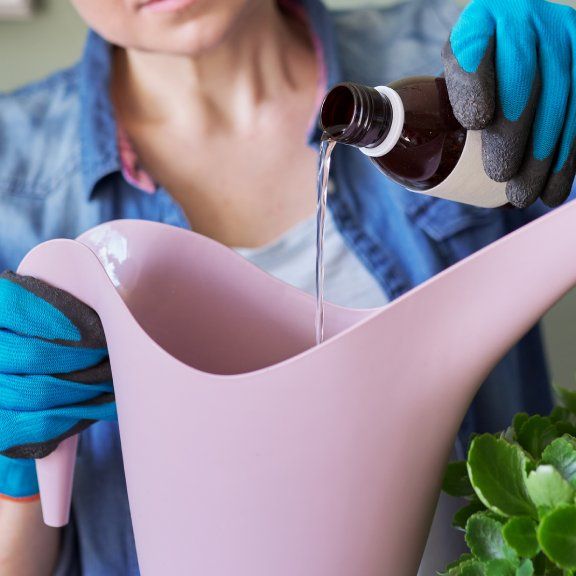- Joined
- Jul 9, 2012
- Messages
- 275
- Reaction score
- 982
- Points
- 216
For years, medical professionals recommended using hydrogen peroxide to treat minor wounds, but that has changed. Doctors no longer recommend it for first aid because the chemical kills healthy and infected cells.
Do not throw away those trusty brown bottles just yet, though. The clear, liquid substance has many uses beyond home wound care.
Three-percent hydrogen peroxide (the concentration most commonly available at drugstores) is inexpensive, very versatile, and safer than many other chemicals you use around the house when used properly. Here are eight of our favorite uses for hydrogen peroxide.
Not only is hydrogen peroxide antifungal and antibacterial, but it's also non-toxic and does not irritate the lungs.
You can also use hydrogen peroxide to disinfect dental appliances such as toothbrushes, braces, and mouth guards.
Again, rinse your greens thoroughly before eating to avoid an unpleasant taste.
In addition to preventing athlete's foot, this treatment also softens calluses and corns.
To control root rot, use one tablespoon per cup of water in regular watering.
Be warned, however, that if you leave the mixture on too long, your precious pet may develop a slightly bleached coat.
Do you also have a handy use for hydrogen peroxide? Write it in the comments below.
Do not throw away those trusty brown bottles just yet, though. The clear, liquid substance has many uses beyond home wound care.
Three-percent hydrogen peroxide (the concentration most commonly available at drugstores) is inexpensive, very versatile, and safer than many other chemicals you use around the house when used properly. Here are eight of our favorite uses for hydrogen peroxide.
Cleaning
Hydrogen peroxide is a versatile cleaning agent that can be used for almost anything in your home, whether it's laundry, toilets, or marble countertops. There are a few things to consider when using hydrogen peroxide - for example, hydrogen peroxide can bleach colored clothing or stain dark marble countertops - but there are also benefits to choosing to clean with hydrogen peroxide.Not only is hydrogen peroxide antifungal and antibacterial, but it's also non-toxic and does not irritate the lungs.
Swishing as a mouth rinse
Hydrogen peroxide is a common ingredient in many commercial mouthwashes. If you are trying to improve your dental hygiene on a budget and can tolerate the strong taste without mint, you can use a mixture of half water and half 3 percent hydrogen peroxide. Rinse the homemade mouthwash around in your mouth for a minute and spit it out (do not swallow). Hydrogen peroxide also whitens teeth and apparently can help with bad breath (also known as chronic halitosis).You can also use hydrogen peroxide to disinfect dental appliances such as toothbrushes, braces, and mouth guards.
Keeping food fresh
In addition to proper food storage, hydrogen peroxide provides an extra boost of freshness and longer shelf life for leafy greens. Add one tablespoon of three-percent hydrogen peroxide to a spray bottle filled with water and spray your salad greens before placing them in the refrigerator. The chemical will help prevent wilting a little longer.Again, rinse your greens thoroughly before eating to avoid an unpleasant taste.
Soak stinky feet
Have you ever taken off your boots after a long day of working outside and almost fainted because of the smell? Odor-causing bacteria that cling to your toes are often the reason for stinky feet. Fortunately, they are no match for hydrogen peroxide. Prepare a foot bath with one part hydrogen peroxide to three parts warm water and let your aching feet relax.In addition to preventing athlete's foot, this treatment also softens calluses and corns.
Growing mushrooms
If you are trying to grow mushrooms but cannot avoid unwanted mold and fungus, add a few drops of hydrogen peroxide to your fruiting chambers. Hydrogen peroxide kills molds and bacteria that threaten mushrooms without affecting the growing spores. As the mushroom tissue grows, the peroxide converts to water and oxygen, creating a healthy, fast-growing mushroom culture.White nails
Whether you work with your hands or like to wear dark nail polish, yellow nails are a common - but unsightly - problem. To make your nail beds shine again, mix one-part hydrogen peroxide with two parts baking soda in a bowl to make a paste. Spread the mixture onto your nails as soon as it stops foaming. Leave the paste on for three minutes, then rinse it off with clean water.To make your garden thrive
Hydrogen peroxide is a magical elixir for your ailing garden. It helps control pests, prevents infections on damaged trees, kills foliage fungi, and fights root rot. Hydrogen peroxide can also improve plant growth because the extra oxygen encourages roots to take up more nutrients. For pest control, add one teaspoon to one cup of water in a spray bottle and spray it on the plants you want to protect.To control root rot, use one tablespoon per cup of water in regular watering.
De-skunkifying your pet
Adventurous pets tend to stick their noses into things that are none of their business - and can come home stinky as a result. If your pet has been sprayed by a skunk, mix a quart of three-percent hydrogen peroxide, a quarter cup of baking soda, a teaspoon of dishwashing liquid, and two quarts of warm water. Apply the mixture to the affected animal before bathing it thoroughly to remove any remaining odor.Be warned, however, that if you leave the mixture on too long, your precious pet may develop a slightly bleached coat.
Do you also have a handy use for hydrogen peroxide? Write it in the comments below.



